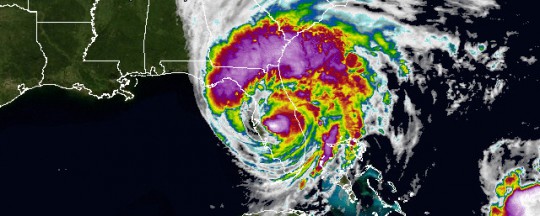Nursing Homes Look For Answers On Generator Costs
September 27, 2017
With time running out to comply with what could be a $240 million generator mandate handed down by Gov Rick Scott, nursing-home administrators and long-term care lobbyists left a Tuesday meeting without an indication of what, if anything the state will do to help offset the costs.
Members of a nursing-home payment workgroup may have to wait until November before state Medicaid officials discuss generators and whether the facilities can be reimbursed under an existing cost-based reimbursement system that has been in effect for more than 20 years or through a prospective payment system that starts in October 2018. Under a prospective payment system, facilities receive prepaid fixed amounts.
Scott this month directed the Agency for Health Care Administration and the Department of Elder Affairs to issue emergency rules requiring every nursing home and assisted living facility to have a generator that can power air conditioning for 96 hours. He made the move after the deaths of residents of a Broward County nursing home, where Hurricane Irma knocked out the air-conditioning system.
Florida Health Care Association chief lobbyist Bob Azstalos asked Medicaid staff during Tuesday’s meeting to provide the workgroup members with background information that shows how generators would be reimbursed under the existing cost-based system compared to under the prospective payment system, which was passed by the Legislature during the 2017 session.
“I would kind of like some background understanding,” Azstalos told Tom Wallace, the Agency for Health Care Administration’s interim assistant deputy secretary for Medicaid finance and analytics.
Wallace made no promises but said Medicaid officials would “talk internally” and see what could be done.
In opening remarks, Medicaid Director Beth Kidder told members of the Nursing Home Prospective Payment Working Group that while generators may be on their minds, they need to focus on a legislative requirement to submit a report to the governor and legislative leaders with recommendations about how to best transition to the new payment system.
“I know there is a lot of post-mortem going on and there’s issues with generators that are focusing a lot of your time, a lot of your thoughts; so it’s kind of hard to drag your attention back to something that seems like it was years ago, but I do appreciate you all being here so soon after getting through this event,” she said.
Lorne Simmons, with the accounting and consulting firm Moore Stephens Lovelace PA, told industry officials last week that it would cost an estimated $350,000 for a 120-bed nursing home to add a generator. In all, he estimated a tab of $240 million.
The mandate came in the aftermath of the deaths of eight residents of The Rehabilitation Center at Hollywood Hills in Broward County. Three more seniors who had been residents of the facility died last week.
The nursing home lost its air conditioning system Sept. 10 when Hurricane Irma knocked out a transformer. The air conditioning had not been restored three days later when the eight deaths occurred and the rest of the facility’s residents were evacuated.
Under the emergency rules ordered by Scott, nursing homes and assisted-living facilities have 45 days to submit plans that would include acquiring generators to ensure temperatures could be maintained at 80 degrees or cooler for 96 hours after losing electricity. Nursing homes and assisted-living facilities would have to carry out the plans within 60 days.
Under state law, emergency rules are designed to be in effect for only 90 days. But lawmakers are already preparing to consider the generator issue during the 2018 legislative session, which starts in January.
The prospective payment workgroup was established after a bitter intra-industry legislative fight over how Medicaid reimburses nursing home providers. The Florida Health Care Association pressed hard for adoption of a prospective payment system and an underlying formula used to help determine how the money is spent and had the support of the Florida Senate.
LeadingAge Florida, which represents smaller nursing homes and senior retirement facilities, tried to beat back the move, arguing that the underlying formula shifted money from high-quality nursing homes and directed it to lower quality nursing homes. Ultimately the Legislature agreed to approve the prospective payment system but delayed implementation for a year.
The Legislature established a workgroup and directed it to review the formula and to recommend any adjustments, if necessary, to the agency, the governor, the Senate president and the House speaker by Dec. 1.
The workgroup was supposed to meet earlier this month, but the Agency for Health Care Administration had to reschedule the meeting because of Hurricane Irma.
In all, it will meet three times before finalizing a report. The next scheduled meeting is Oct. 19 in Tallahassee.
by Christine Sexton, The News Service of Florida
Comments
One Response to “Nursing Homes Look For Answers On Generator Costs”




After Hurricane Ivan weren’t all gas stations and cell towers to have generators?
Did that happen?